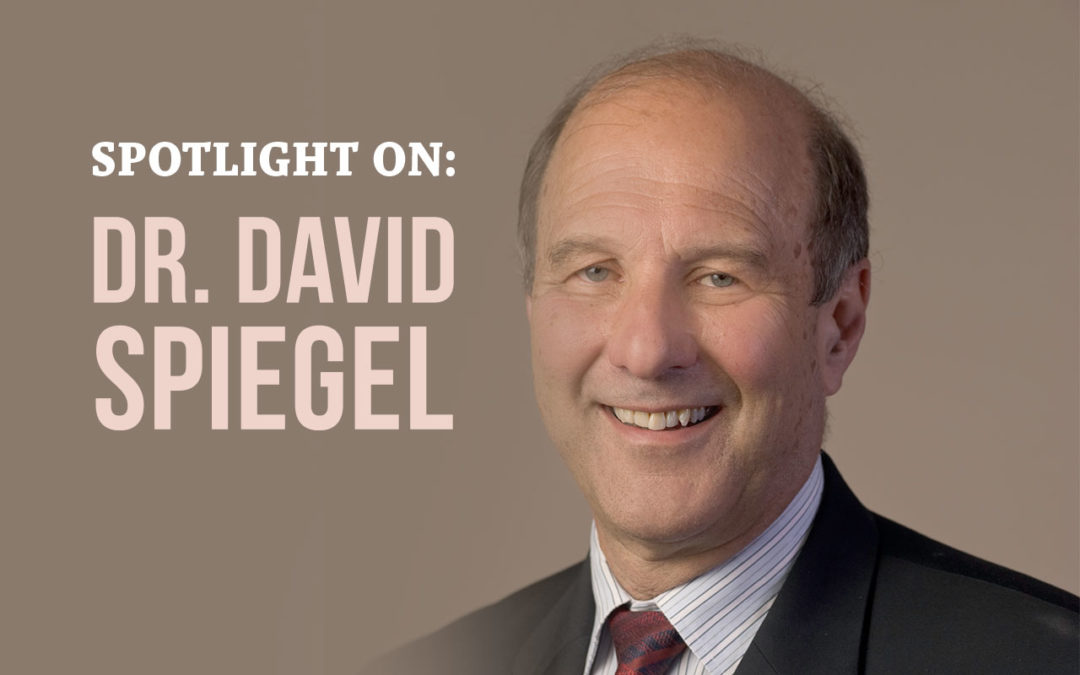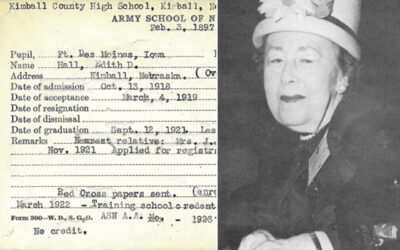
By Matt Skoufalos
Growing up in a household where both parents were psychiatrists and psychoanalysts, David Spiegel joked that his upbringing prepared him to become “whatever kind of psychiatrist I wanted to be.” After he saw the results his father demonstrated through learning and practicing hypnosis with his patients, Spiegel found his own interest in the technique piquing as well.
“I was thinking about being a surgeon,” he said. “I had really liked my surgical rotations in medical school. I was suturing people up in the ER; I liked fixing things, and they liked to talk.”
After completing his M.D. at Harvard Medical School, Spiegel began studying psychiatry and neurology. He wrote a book, “Trance and Treatment,” with his father, Herbert. And along the way, Spiegel continued to firmly establish methods by which hypnotherapy, one of his father’s most reliably leveraged practice tools, could help navigate the mind-body connections in clinical settings, including in the perioperative environment.
Spiegel and his colleagues published some of these concepts in the April 29, 2000, edition of Lancet. In a randomized trial, 241 subjects undergoing percutaneous vascular and renal procedures were offered intravenous access to opioids for their pain as part of standard interoperative care.
In addition to these, some patients were offered general emotional comfort from an attending nurse, and others received care from a nurse or psychologist who taught them to use self-hypnosis. In all circumstances, patients were asked to rate their pain and anxiety levels, and researchers measured the amount of opioid doses they administered as well.
“After about an hour and a half, the hypnosis group had 20 percent of the pain that the standard care group did, and they were using half the amount of opioids,” Spiegel said. “There was about 25 percent of the complications, and the procedures got done 17 minutes faster. Not only were the patients less anxious, the medical staff were less anxious as well.”
“I keep telling people that if it were a drug that did that, and you published a randomized trial like that in Lancet, everybody in the world would be using that drug,” he said. “It’s teaching people to manage their experiences better.”
Spiegel argues that self-guided hypnosis techniques can offer much lower-intensity intervention than treatments that rely on “incision, injection and ingestion.” Since the severity of pain is related to how the brain interprets the signals it receives from other parts of the body, hypnotherapy can help manage those interpretations.
In sensory evoked potential electroencephalogram (EEG) studies, Spiegel’s research group has examined brain responses when subjects are given small electrical shocks versus responses when they are hypnotized and told that their hands are being placed in icy water. In the hypnosis condition, Spiegel said the brains of those participating in the study demonstrated half the response to pain stimuli of subjects who weren’t hypnotized.
“We tend to treat most pain as if it were acute pain, where you don’t know what’s going on, and you’d better get out of danger and get it fixed,” he said. “We now have neuroimaging evidence that the brain does dramatic changes in all kinds of perception hypnosis. Functional magnetic resonance imaging (fMRI) studies have shown that you can reduce activity in the anterior cingulate cortex, a key region in the pain network, during hypnosis.”
Inducing hypnosis can take less than a minute, and Spiegel said that at least two-thirds of the adult population is capable of being hypnotized. In simple terms, the subject is invited to slowly close their eyes, take a deep breath, let it out and imagine the body floating. If he’s working to treat pain, Spiegel will invite patients to imagine themselves in an icy mountain stream, or a warm bath, and picture the cold or warmth filtering out the pain.
“To the extent that people can do this, they start to become less anxious as well,” he said.
For people who’ve experienced chronic pain or trauma, hypnosis can support them overcoming patterns in thought that can make things worse, Spiegel said. How the body deals with threats to itself, or the results of ill health, pain, and anxiety, involves dissociation from such experiences. Hypnosis can help access those mental states that separate past experiences from things that are happening now. As Spiegel said, “It’s a way of distancing yourself from damage.
“Every time you have an experience, your brain processes it through pattern recognition,” he said. “If you’ve had traumatic experiences, they will tend to color your reactions to situations that look somewhat similar to them. It’s our shorthand for figuring out how to integrate novel information.”
“We use hypnosis to dissociate physical arousal from your anxiety,” Spiegel said. “One feeds the other. Changing your mental state will change your view of even the same problem.”
To broaden access to the techniques that have helped the subjects in his clinical research, Spiegel and his colleagues developed a mobile application called Reveri that coaches users through guided hypnotic techniques to handle a number of conditions, from chronic pain and anxiety to insomnia and smoking cessation. From their initial proof of concept, which rolled out through the Amazon Alexa platform, the team now boasts 15,000 users on the Reveri app.
“With hypnosis, either you feel better or you don’t, so you know right away whether it’s likely to help you,” Spiegel said. “With the people who use Reveri, we’re getting a 30 percent reduction in pain and stress in 15 minutes. We’re getting feedback from them using Google analytics. It doesn’t always work, but it works for a lot of people, and with far fewer side-effects than opioids.”
Spiegel believes that broader application of the Reveri app and related techniques in the perioperative environment could work to help reduce patient stress and pain, and to speed recovery times.
“If I were a joint surgeon, I would say [to the patient], ‘Use this app and train yourself to handle stress before the surgery if you’re anxious about it,’ ” he said. “If you can just get your body comfortable using self-hypnosis, you’re already controlling one aspect of the stressor: the fear of the surgery.”
“I would have people use the app before surgery, or to go back to sleep if they wake up,” Spiegel said. “Many people having orthopedic surgery are already in pain. I’d have them prepare for the surgery that way. Afterwards, I would have people use the app as part of their rehabilitation. Instead of taking another OxyContin, practice for one or two hours if the pain gets worse.”
“I’m a physician; I use meds,” he said. “If it doesn’t work, then use your meds. But make it the last thing you do, not the first thing you do.”
Lest anyone doubt that Spiegel practices what he preaches, he first discovered the utility of self-hypnosis after having had reconstructive shoulder surgery in his youth. Spiegel wasn’t taking the pain management medicine offered to him, and the surgical resident believed it was because he had suffered little nerve damage from the procedure. Instead, he was managing the discomfort with self-guided hypnosis.
“That’s the way in which many people misunderstand pain, which is a combination of physical damage and mental reconstruction of the experience,” Spiegel said. “See if you can better control the understandable sensation that you have. It’s not hard, but it takes time. Prepare before, and use it afterwards.”









